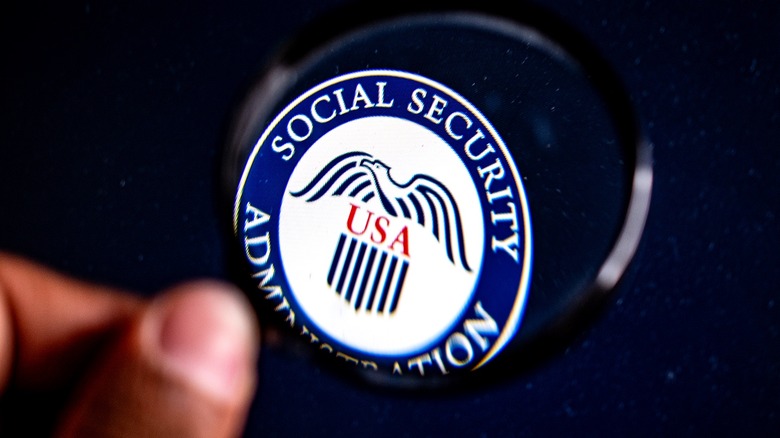You've Been Warned: Social Security May Be Monitoring Your Social Media
There's a lot to be in-the-know about for Social Security beneficiaries and Supplemental Security Income recipients. For example, for retirees, three Social Security changes are coming in 2025, and for those who receive SSI benefits, a double payment is coming this November. As for Americans who receive disability, it turns out they should stay aware of their social media use, as the Social Security Administration could be watching it.
Agents at the Social Security Administration aren't interested in the selfies you post because they think your Instagram-perfect life is worth smashing that "like" button. No, they're only interested in the selfies you take with your pets or the pictures you post of your food for one reason only: They think you're a liar.
We jest, but that's actually the reason Social Security may be monitoring your social media apps, such as Facebook, Instagram, and even Venmo. Folks who file long-term disability claims and stand to benefit from Social Security payments may face scrutiny from the administration, especially if the claimant's social media posts show them being physically active in a way that's at odds with their claim.
Social Security's monitoring
It's legal for the Social Security Administration to evaluate public social media posts to determine whether or not a claimant is fraudulent or not. In 2019, in its 2020 budget request, the SSA advised the possibility of surveilling social media posts in instances of suspected disability claim fraud. In addition to photographic evidence taken from such apps as Facebook or Instagram, today, Venmo activity may also be fair game for SSA investigation and eventual claim denial. For example, Venmo payment notes documenting a user's dinners out on the town, triumphant bike rides, or even days going fishing.
In her explanation on enhancing fraud prevention, acting Commissioner Nancy Berryhill wrote: "Currently, agency adjudicators use social media information to evaluate a beneficiary's symptoms when there is a CDI unit's Report of Investigation that contains social media data corroborating the investigative findings. In FY 2019, we are evaluating how social media could be used by disability adjudicators in assessing the consistency and supportability of evidence in a claimant's case file."
Ever since this disclosure by Social Security, legal service providers, advocacy groups, and think tanks have all weighed in on the ramifications of surveilling social media on the grounds of fraud suspicion. The SSA's own explanations posit that this is to protect its funds for genuine beneficiaries, and that it's fully within bounds because it's investigating data voluntarily made public by social media users.
How to protect your privacy
Normally, individuals who have nothing to hide have nothing to worry about when an investigatory body like the Social Security Administration or, say, the IRS conducting an audit, looks through their paperwork. However, our relationship to social media is anything but normal. The images and words and videos people post on these apps are usually at least a little curated. Posting the best selfie of the bunch or the prettiest view in an otherwise messy home are proof positive that social media presents a story, rather than reality.
It's not yet truly clear how this dynamic can affect Social Security disability claims, be they genuine or fraudulent. What is clear from the sheer amount of law firms posting articles and videos about the SSA (and insurance companies) being able to review or regularly monitor social media posts is that alarm bells are ringing.
What the ACLU calls "suspicionless monitoring" of social media may be gaining traction when it comes to governmental agencies. Of course, this is controversial – but whatever way you feel about it, if you're filing a disability claim and have concern, you can always set your social media accounts to private. Consider what you are posting, and ask others to refrain from tagging you in posts that may undermine your claim.


